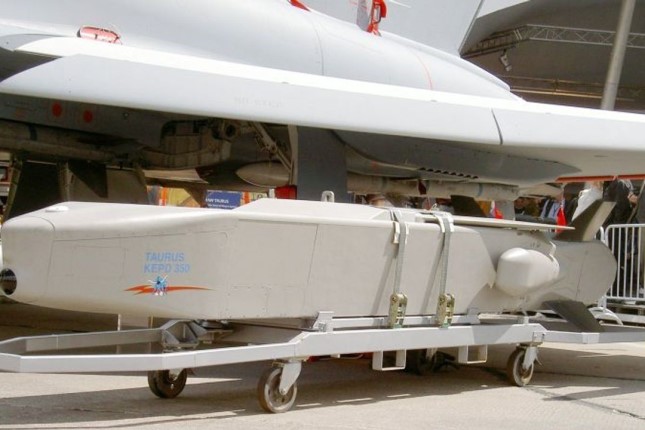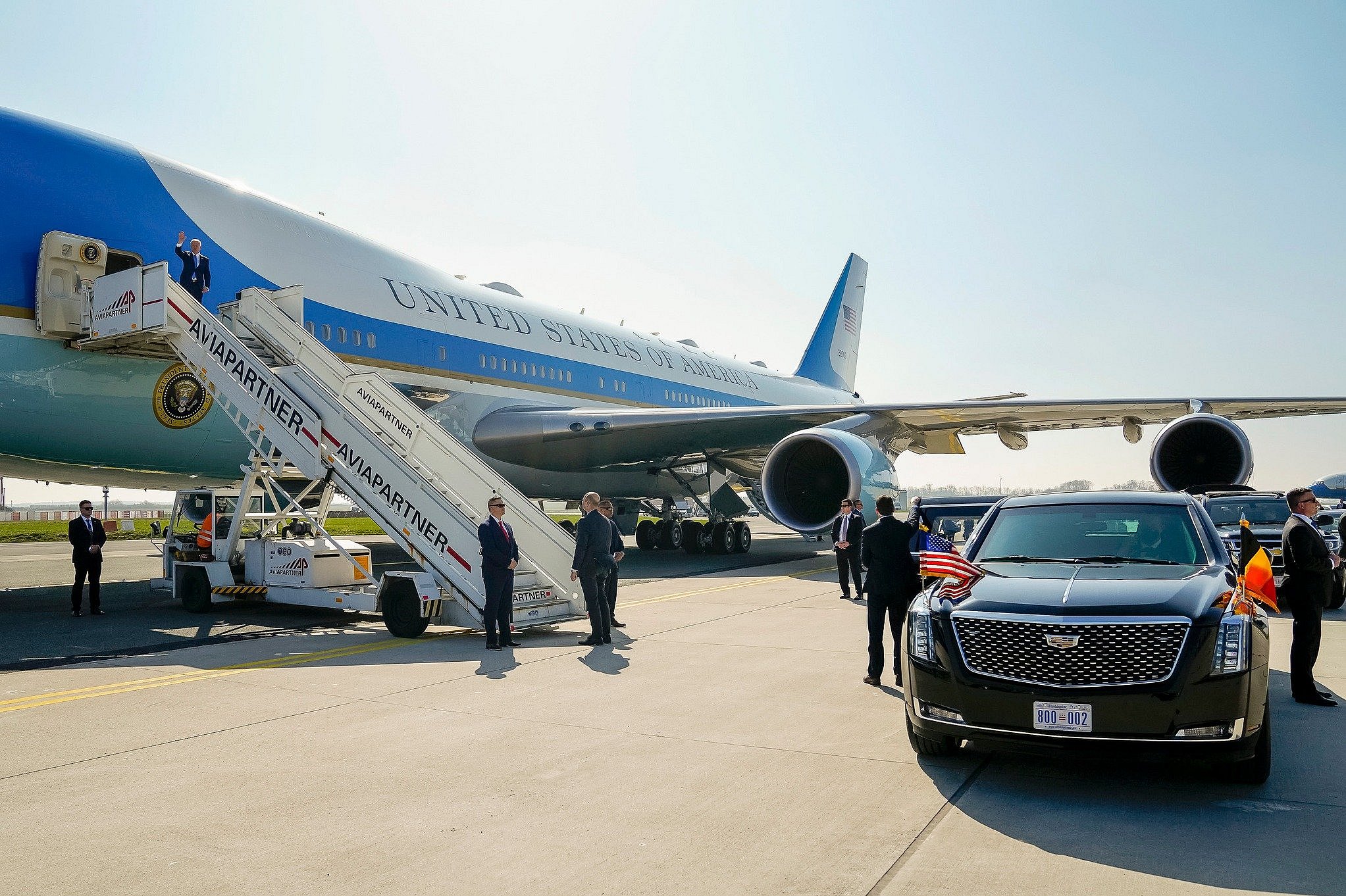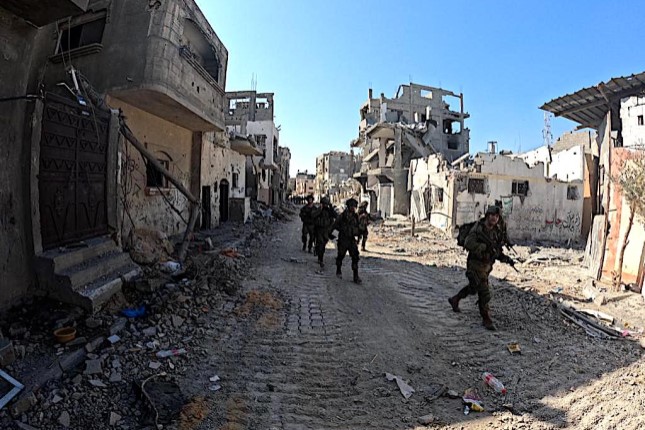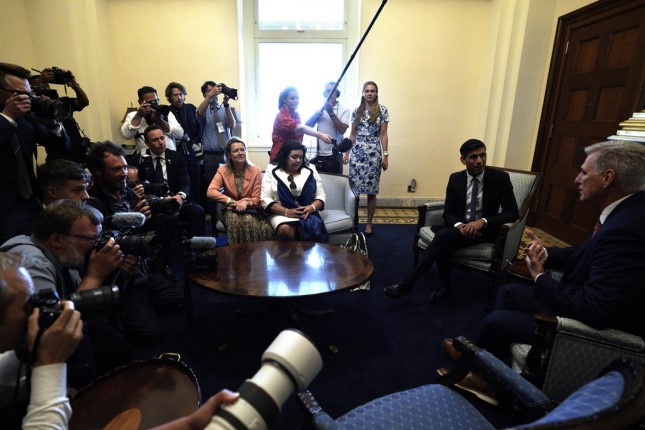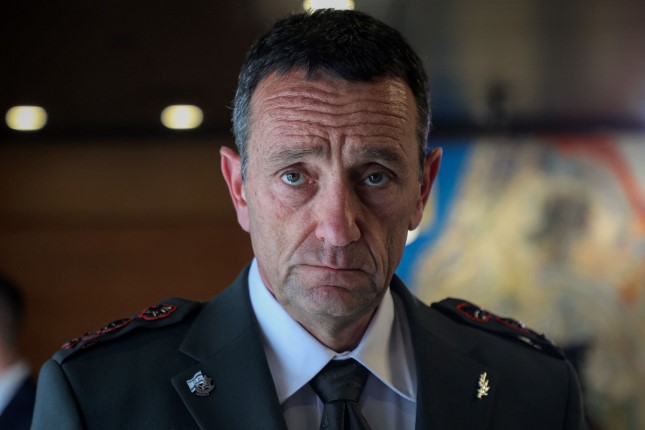This emerged from an approximately 30-minute conversation on February 19, which was reportedly intercepted by Russian intelligence and published over the weekend by the Russian news channel RT.
The conversation involved Air Force Inspector Ingo Gerhartz, Head of Operations and Exercises in the Luftwaffe Command Frank Gräfe and two lieutenant colonels of the Bundeswehr (armed forces) Space Command named Fenske and Florstedt. According to their own statements, the military commanders met to prepare a meeting with Defense Minister Boris Pistorius (Social Democrats, SPD) and to discuss with him whether and how the Taurus can be delivered to Kiev and used against the nuclear-armed power Russia.
Pistorius wanted to “get really deep into Taurus,” Gerhartz began the conversation. He leaves no doubt that he himself supports the deployment and use of the weapons system and that he and the military are concerned with convincing Pistorius and the entire political leadership. The whole discussion about the Taurus keeps coming up, “because nobody really knows why the chancellor is blocking here,” he complains.
The participants do not mince words about their plans to further escalate the war against Russia. Specifically, they focus on attacks on Russian ammunition depots behind the front and the destruction of the logistically and strategically important Crimean bridge which has connected the Russian region of Krasnodar with the Crimean Peninsula since 2018. Florstedt explains at one point that the Taurus is particularly effective in combating these targets. The bridge to the east is quite hard to reach, and the pillars are relatively small, and the Taurus can constitute that, and the Mun[itions]depots—we just get through. And if I take that into account now and compare how many Storm Shadows [the British equivalent of the Taurus] and […] were shot down, you just have a pretty good unique selling point.
Then Fenske, who was apparently commissioned together with Florstedt to carry out the Taurus mission, explains that far more than one cruise missile was needed to destroy the bridge. This is “unfortunately—due to its size—like an airfield. That means it may well be that I need ten or twenty missiles for this.” Gerhartz speaks of “fifty in the first tranche” and then possibly another 50 units to be delivered.
A large part of the conversation revolves around how to dispel the “political concern” of “too direct participation” by the Bundeswehr in the deployment of the Taurus. The idea of driving the target data “from Poland by car” to Ukraine “so that no one notices” is rejected “as an unacceptable solution.” The same goes for the proposal to simply have the data files created by the Taurus manufacturer MDBA in Schrobenhausen instead of by the Air Force in Büchel.
At the same time, the military figures agree that the full training of Ukrainian soldiers on the Taurus would be demanding and time-consuming. Fenske therefore pleads for this: “When it comes to the deployment afterwards, the recommendation would actually be that at least the first mission support will be provided by us, since the planning is very complex.”
Other proposals under discussion are no less explosive. Gräfe raises, at least in the first phase until the Ukrainians are “fully trained themselves,” the issue of cooperating with Britain. The expertise of the British army, which would also have “a few people on the ground,” could be used to provide the Ukrainian army with the necessary data and satellite images.
At another point, Gerhartz raises the question of whether the Ukrainian army is at all dependent on direct data from Germany due to the already existing NATO support on the ground. One must “always also assume all the things the Ukrainians now do,” he explains. “We also know that there are many people with an American accent walking around in civilian clothes. You can say that, they are then relatively quickly able to do that themselves, because they all have the satellite images.”
This is explosive in several respects: Just a few days after French President Macron’s statement that the deployment of NATO troops to Ukraine was “not excluded,” the leaked conversation confirms that they are already on the ground. The fact that German generals, of all people, are planning major attacks on Russian targets exposes Scholz’s claim that Germany is “not a war party” as a mere sham.
The German army leadership’s rush towards escalation draws on a dark tradition. The Wehrmacht’s war of annihilation against the Soviet Union, which began 83 years ago and in which the Luftwaffe played a central role under its then-leader Hermann Göring, claimed the lives of at least 27 million Soviet citizens. The current escalation of war between Germany and NATO against Russia serves the same essential imperialist goals: the military subjugation of Russia and the plundering of its vast deposits of raw materials. The current attack not only has the potential to destroy the whole of Europe, but to turn the entire planet into a nuclear desert.
The deputy chairman of the Russian Security Council, Dmitry Medvedev, warned on his Telegram channel that “Germany is preparing for war with Russia.” He continued, “The eternal opponent, the Germans, have once again become our arch-enemies.” RT Editor-in-Chief Margarita Simonyan, who has close ties to the Kremlin, called for direct attacks on targets in Germany: “Isn’t it time we showed them how it ended for Germany the last time Russian bridges exploded?”
The majority of the ruling class in Germany is totally indifferent to the vast dangers posed by the eruption of a direct war with Russia. It has reacted to the leaked conversation of the generals with a further intensification of anti-Russian incitement and war propaganda in order to legitimise its renewed push eastwards behind the backs of the population. The problem for them is not that the war conversation took place, but that Russian intelligence was able to intercept it. In fact, what the Air Force leadership discussed is in line with the official policy of the federal government.
A motion passed in the Bundestag (federal parliament) on February 22—three days after the meeting—calls for Ukraine to be supplied with long-range weapons systems in order to carry the war deep into the Russian heartland. It states that “the supply of additionally required long-range weapons systems and ammunition is necessary in order to facilitate, on the one hand, Ukraine’s ability to carry out targeted attacks in compliance with international law on strategically relevant targets far in the rear of the Russian aggressor’s territory and, on the other hand, to further strengthen the ground forces with the supply of armoured combat systems and armoured vehicles.”
In his latest statement, Pistorius, who already openly threatened Russia with war in late January, described the publication of the intercepted conversation as part of an “information war” by Russian President Vladimir Putin. “It’s a hybrid attack for disinformation—it’s about division, it’s about undermining our unity,” he claimed. One must “not fall for Putin” and must therefore react prudently, “but no less resolutely.”
Photo: Taurus KEPD 350 cruise missile under a Eurofighter Typhoon © Photo by GFDL / CC BY-SA 3.0.
Source: World Socialist Web SIte.
